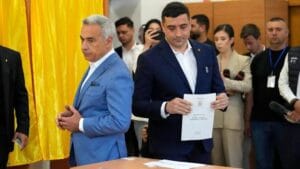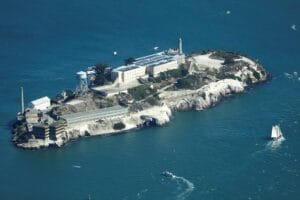US lifts $10m bounty on HTS leader amid controversial talks
The U.S. State Department has removed its $10 million bounty on Abu Mohammad al-Jolani, the leader of Hayat Tahrir al-Sham (HTS), a move that coincides with a meeting in Damascus between U.S. Assistant Secretary of State for Near Eastern Affairs Barbara Leaf and Jolani.

The U.S. State Department has removed its $10 million bounty on Abu Mohammad al-Jolani, the leader of Hayat Tahrir al-Sham (HTS), a move that coincides with a meeting in Damascus between U.S. Assistant Secretary of State for Near Eastern Affairs Barbara Leaf and Jolani.
The U.S. still designates HTS as a terrorist organization linked to Al Qaeda, but the decision has raised questions about Washington’s evolving strategy in Syria.
Leaf defended the decision, explaining, “It would be a little incoherent to have a bounty on the guy’s head while meeting with him.” She described Jolani, who now uses his real name, Ahmed al-Sharaa, as “pragmatic” and noted that he has made “very pragmatic and moderate statements on various issues from women’s rights to protection of equal rights for all communities, et cetera.”
Critics, however, are skeptical of Jolani’s so-called moderation. “This is a man who has built his power through violence and allegiance to Al Qaeda,” said a Middle East analyst. “The U.S. legitimizing him in any capacity sends a dangerous message.”
Jolani’s history is deeply rooted in extremist networks. He joined Al Qaeda in Iraq after the U.S. invasion in 2003 and fought American forces before being detained at Camp Bucca for five years. “Camp Bucca was a breeding ground for jihadists, and Jolani emerged from it even more entrenched in his ideology,” a former intelligence officer explained. Jolani’s close ties to Abu Musab al-Zarqawi and later Abu Bakr al-Baghdadi underline his longstanding influence in jihadist circles.
During his tenure as leader of the Al Nusra Front, HTS’s predecessor, Jolani oversaw numerous terrorist attacks. The U.S. State Department previously described his leadership as responsible for “multiple terrorist attacks throughout Syria, often against civilians.” The Office of the Director of National Intelligence (DNI) also maintains that HTS seeks to replace the Assad regime with a government based on “a fundamentalist interpretation of Islamic law.” Jolani’s past rhetoric included calls for retaliatory attacks against the U.S.-led coalition in Syria, with one intelligence report noting his explicit threats in 2014.
Despite the criticism, Leaf emphasized that the decision reflects the evolving realities on the ground in Syria. “Jolani has demonstrated a willingness to distance himself from his past ties to Al Qaeda,” she said, adding, “Our engagement is based on pragmatism, not naivety.”
HTS recently gained significant ground in Syria, leading a successful 10-day offensive that culminated in the capture of Damascus on December 8. While this military victory has shifted dynamics in the region, observers remain cautious. “The rebranding of HTS doesn’t erase its bloody history or its fundamentalist goals,” said a regional security expert.
Jolani himself has sought to justify his transformation. In a rare public statement, he claimed, “HTS is no longer the organization it once was. We are committed to protecting all communities under our control.” However, his critics remain unconvinced, pointing to the group’s continued use of guerilla tactics and suicide attacks.
The removal of the bounty and the direct engagement with Jolani have sparked significant debate. “This is not just a tactical decision; it’s a political gamble,” a Syrian opposition figure said. “The U.S. is playing a dangerous game by legitimizing someone who was, until recently, their enemy.”
The long-term implications of this shift remain unclear, as the U.S. balances its strategic goals in Syria with the risks of empowering figures like Jolani.










